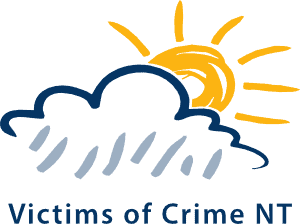For people with disabilities
Personal safety is a concern for people with disabilities and their carers/families.
Ensuring their safety requires a combination of:
- environmental adjustments
- education
- the use of assistive technologies.
| Important numbers | Contact |
|---|---|
| Emergencies | 000 |
| Police assistance | 131 444 |
| Fire assistance | 132 500 |
| NT Emergency Services assistance | 08 8999 3473 |
| Crime Stoppers NT (to report suspicious behaviour) | 1800 333 000 |
| Victims of Crime NT | 1800 672 242 |
Caring for someone
Do you care for someone at yours or in their home?
Here are some good information and tips on how we can better care for our family or friend in their or your home.
Keeping safe
Everyone's personal safety is important!
If you or a family member has a disability, here are some strategies and considerations in keeping yourself or family member safe.
By implementing some strategies, we can significantly enhance yours or your family members safety and quality of life.
Consider:
- updating the home to accommodate physical limitations, such as ramps, widening doorways and accessible bathrooms
- installing safety features such as grab bars, non-slip mates and adequate lighting.
Consider:
- investing in devices like medical alert systems to assist with accessing help at the push of a button
- using wheelchairs, walkers, and scooters to help you or the person you are caring for move safely and independently.
Consider:
- engaging with community programs that provide support and resources for individuals with disabilities
- setting up buddy systems by pairing individuals with a buddy who can assist in case of an emergency
- ensuring emergency contact information is easily accessible and up to date.
Children with a disability
To be the best carer you can be, and to provide your child with the highest quality of life possible, it's important to understand their needs and your own.
It will help you and your child if you seek support early from professionals, family, friends, or other parents in the same situation.
Go to the NT Government website for more information about your child and how to keep them safe.
Find out more
Check out the links to government and non-government organisations for more information and and advice.
Access to disability services in the NT
Visit the NT Government's website.
Aged and disability care – Top End
Visit Larrakia Nation's website.
Aged and disability care – Central Australia
Visit Tangentyere Council's website.
Be Connected
Visit the eSafety website.
Digital literacy with NBN
Visit the Council of Ageing NT's website.
Disability gateway
Visit the Australian Government's website.
Disability Services in the NT
Visit the NT Government's website.
Disability support services for children in the NT
Visit the NT Government's website.
Employment for people with disabilities
Visit the Australian Government's website.
Frail, aged and disabled services
Visit Central Australian Aboriginal Congress' website.
Living with disabilty – Keeping safe online
Visit the eSafety Commissioner's website.
Remote aged care NT services for First Nation peoples
Visit Australian Government's My Aged Care website.
Safe and Sound Program
Safe and Found program is designed to support people living with dementia, autism or other cognitive impairment who might be at risk of becoming lost or reported as missing.
Who can help
National Disability Insurance Scheme (NDIS)
Call 1800 800 110
My Aged Care
Call 1800 200 422
NT Police
Call 131 444 in non-emergencies.
In emergencies call 000

Victims of Crime NT
Free call: 1800 672 242
Darwin: 08 8941 0995
Alice Springs: 08 8952 4466